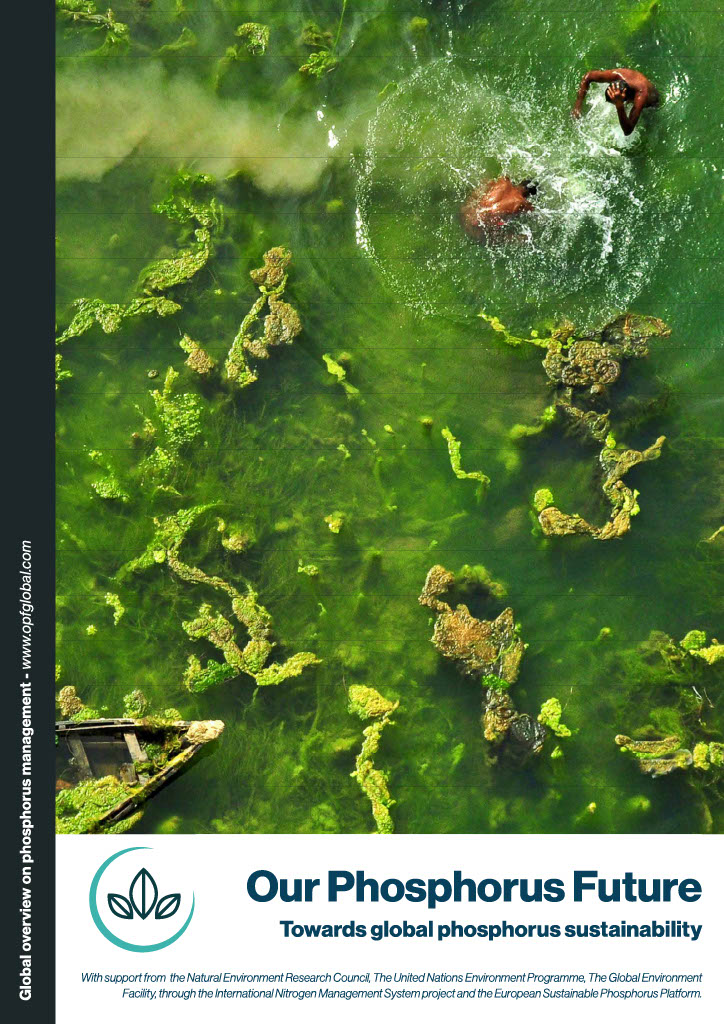
The First of Its Kind
Our Phospohrus Future (OPF) was delivered through a partnership between the UK Centre for Ecology and Hydrology and the University of Edinburgh, UK, and was funded by the UK Natural Environment Research Council (NERC), and the United Nations Environment Programme (UNEP) and the Global Environment Facility (GEF) through the GEF/UNEP project 'Towards the International Nitrogen Management System' (INMS). The European Sustainable Phospohrus Platform (ESPP) provided additional funding for production of the report.
This report has been prepared by members of the Our Phosphorus Future network, as an output of the INMS project and a peer-reviewed contribution to the worl of the GPNM. This Global Overview has been prepared as a scientifically independent process.
The OPF report is the culmination of four years of collaboration (from 2017 to 2021) by over 100 scientist and industry experts from around the globe and was written by 40 authors from 17 countries. It is a response to the critical need to progress sustainable phosphorus use and is in support of the call made through the Helsinki Declaration.
This project is led by Dr Will Brownlie, Prof. Kate Heal, Prof. Dave Reay, Prof. Bryan Spears, and Prof. Mark Sutton.
The Phosphorus Problem
Unsustainable phosphorus use affects food and water security, freshwater biodiversity and human health and phosphorus flows have been acknowledged as crossing planetary boundaries for over a decade. To effectively address phosphorus management the OPF report outlines the need for increased policy and public awareness, operationalisation of policies, and intergovernmental coordination.
The OPF report both identifies the priority issues and provides possible solutions and the capacity to address phosphorus sustainability at varying scales. More sustainable phosphorus will yield multiplying benefits as it contributes to commitments outlined in multiple UN-Sustainable Development Goals (SDGs), including SDG1 – No poverty and SDG13 – Climate Action.
Looking to the Future
Outputs of the project include the OPF Report and additional summary for policymakers. These include the ten key actions to improve sustainable phosphorus management globally and an ‘aspirational goal for phosphorus’. This goal is the ‘50:50:50 goal’ which seeks to reduce global phosphorus pollution by 50% and increase the recycling of phosphorus by 50%, by 2050.
Calls to action by the OPF report include:
- the establishment of an intergovernmental coordination mechanism to catalyse integrated action on phosphorus
- an international framework to consolidate the collective knowledge, quantify the economic and societal benefits of improvements in phosphorus management and establish targets for time-bound improvements
- a UNEA resolution on sustainable phosphorus management or an equivalent global commitment to act
The OPF report is a landmark publication in the effort to achieve sustainable nutrient management and a huge step forward in addressing the challenges related to phosphorus flows.
Related links:
UKCEH article: Scientist offer solutions to global phosphorus crisis that threatens food and water security
The Guardian article: Using phosphorus from sewage could help with soaring food bills, says report
The Independent article: Call to tackle phosphorus impact of food and water security
The Courier article: War, pandemic behind phosphorus loss

